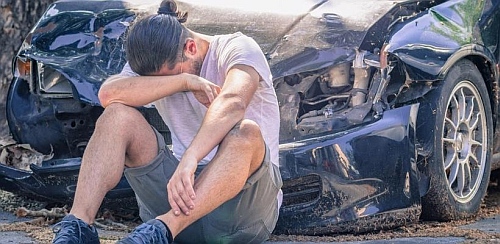- March 28, 2023
When speaking to a Greenville car wreck attorney during the initial case review, many accident victims wonder whether they should go ahead and file a lawsuit, because they can demand punitive damages. While we appreciate that people take the time to read about their legal rights online, the quantity of incomplete or misleading information makes a lawyer’s work harder.
The fact is that not all car accident cases warrant punitive damages. It may seem unfair, but this is not a form of compensation for your damages, pain and suffering. In fact, this category of damages is meant, as its name states, as further punishment for the at-fault driver. It is also meant as a deterrent for other drivers who may act in the same reckless manner.
South Carolina Law on Punitive Damages
South Carolina Code of Laws 15-32-520(D) specifies the conditions in which a plaintiff may demand punitive damages. They must prove that the at-fault driver’s conduct in causing their injuries was:
- Willful
- Wanton
- Reckless.
These concepts go beyond the simple negligence leading to a fender bender. It involves a significant degree of lack of care for your life, safety, and wellbeing. For this reason, not all car accident cases qualify for punitive damages.
However, when they are warranted, you can be certain that a determined Greenville car wreck attorney will make sure to include them in your list of damages presented to the judge and jury.
Evidence Needed to Prove the Need for Punitive Damages
Now, let us look at the kind of evidence you must produce to convince the jury that the at-fault driver acted willfully, wantonly, or recklessly. In the experience of a Greenville car wreck attorney, jury members will have no doubt about the need to award punitive damages when they see:
- The police report detailing the devastation caused by the other driver to your car
- The medical reports showing the extent and severity of your injuries
- Photos and videos of the crash scene
- Eyewitness testimonies
- Toxicology report indicating that the driver was under the influence of alcohol or drugs
- Any criminal proceedings initiated by the state against the at-fault driver.
What Are the Factors that Influence the Value of Punitive Damages?
As we will explain below, punitive damages in South Carolina are limited by caps, but there are also exceptions to the rule. But, before that, let us explain what the members of the jury will consider in determining the value of these damages:
1. The Driver’s History of Similar Conduct
A driver who has never acted with recklessness in causing a car accident will not receive the same punishment as a repeat offender. Indeed, the history of traffic violations and other criminal convictions involving wanton, reckless, or willful conduct will weigh a lot in the jury’s decision.
It is your Greenville car wreck attorney’s job to obtain the defendant’s driving and criminal history. A lawyer has the right to seek this kind of information from all kinds of state and federal authorities.
2. The Driver’s Attempt to Conceal the Deed
A hit-and-run accident is a classic example in which the driver was aware of the destruction they caused and tried to conceal it – or, at least, their identity. Other situations that will increase the punitive damages are:
- Attempts to alter the car accident scene (moving the car, scrubbing skid marks)
- Attempts to give you false contact and insurance information
- Attempts to flee the accident scene after they can’t persuade you not to report the accident.
3. The Degree of Punishment Needed for the Specific Act
Reckless conduct is also categorized by degrees of severity. For example, leaving the accident scene is reckless and wanton. Pretending to give assistance to the injured party, only to abandon them in an isolated area shows criminal intent.
The jury will follow the instructions given to them to appreciate the severity of the deed and what type of punishment is adequate.
4. The Driver’s Wealth
Finally, punitive damages must act as a deterrent to repeating the offense. For this reason, they must represent a significant amount in relation to the driver’s wealth and income level.
For someone who makes just $24,000, the amount of $10,000 will represent significantly more than for someone who usually makes this amount of money in just one month.
Likewise, the jury will consider the driver’s ability to pay. If they work on the minimum wage, you are not likely to collect $50,000 from them anytime soon.
Caps on Punitive Damages in South Carolina and Exceptions
As we hinted at above, South Carolina sets caps on the amount of punitive damages a jury can award. They represent the greater amount between:
- $500,000
- Three times the economic and non-economic damages.
There are two exceptions to the rule. In some situations, the jury can increase the punitive damages to four times the actual damages or $2,000,000:
- The reckless conduct was motivated by greed
- The defendant could be subject to a felony conviction in a criminal case.
Also, there are no caps on punitive damages if:
- The car accident was caused by a driver under the influence of alcohol or drugs
- The at-fault driver intended to harm you
- The defendant received a felony conviction for the accident that caused your injuries.
A Greenville Car Wreck Attorney Will Determine the Eligibility for Punitive Damages
While a Greenville car wreck attorney is mainly focused on settling your car accident case as soon as possible, we also see exceptional situations when a lawsuit is the best course of action. Some car accidents are not caused by a moment of distraction. They are caused by a driver who does not care about the other people sharing the road.
Drunk driving, hit-and-run accidents, and other situations show that the driver acted with willful, wanton, or reckless conduct. These are accident cases in which your lawyer will seek punitive damages in a lawsuit.
While no one wants to go through a trial, this is necessary if you want to collect the maximum compensation amount allowed by law. In some cases, an insurance company will recognize the risk of punitive exposure and settle for a very large amount of money. But such cases are rare.
In any situation, your best course of action is to make the most of your free case review and tell a Greenville car accident lawyer every relevant detail concerning the other driver’s conduct. So, do not wait too long after the crash and schedule an initial appointment with us.
Call 864-310-7897 today!



